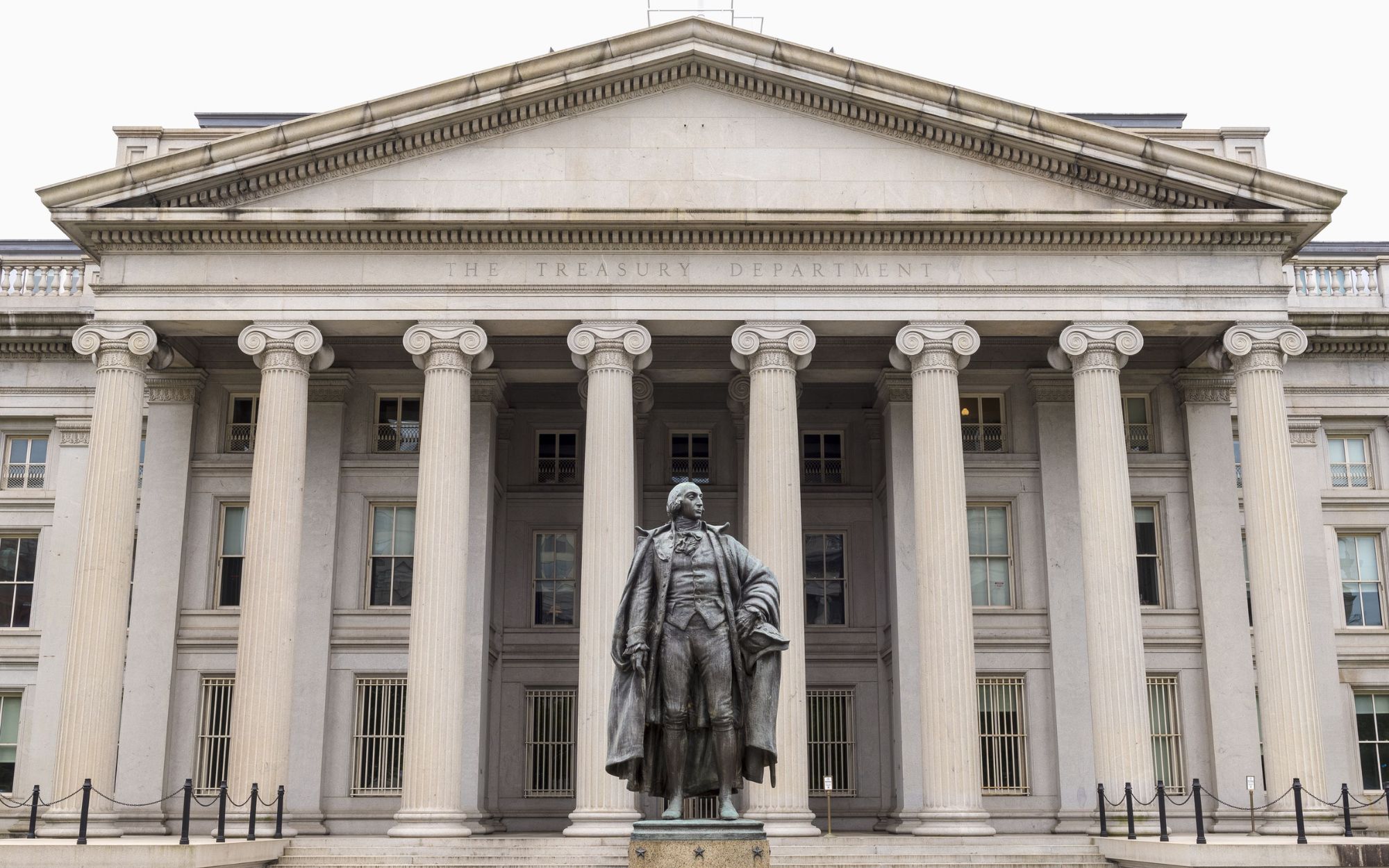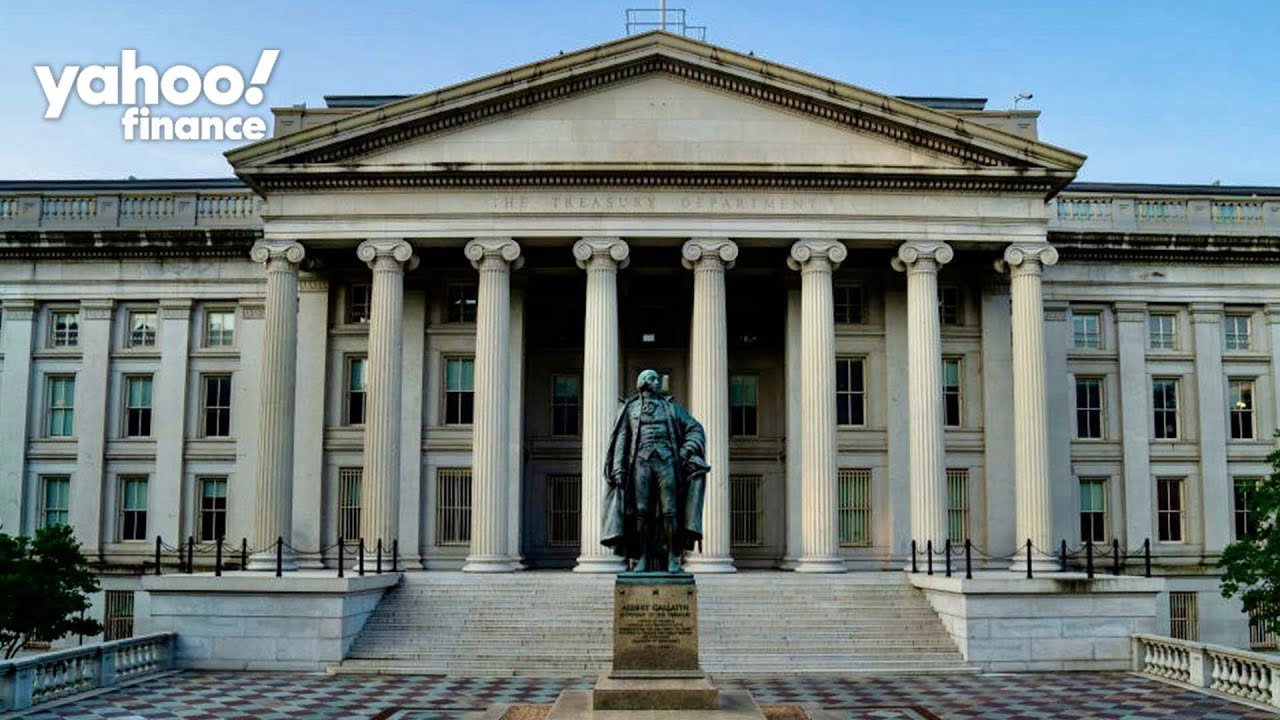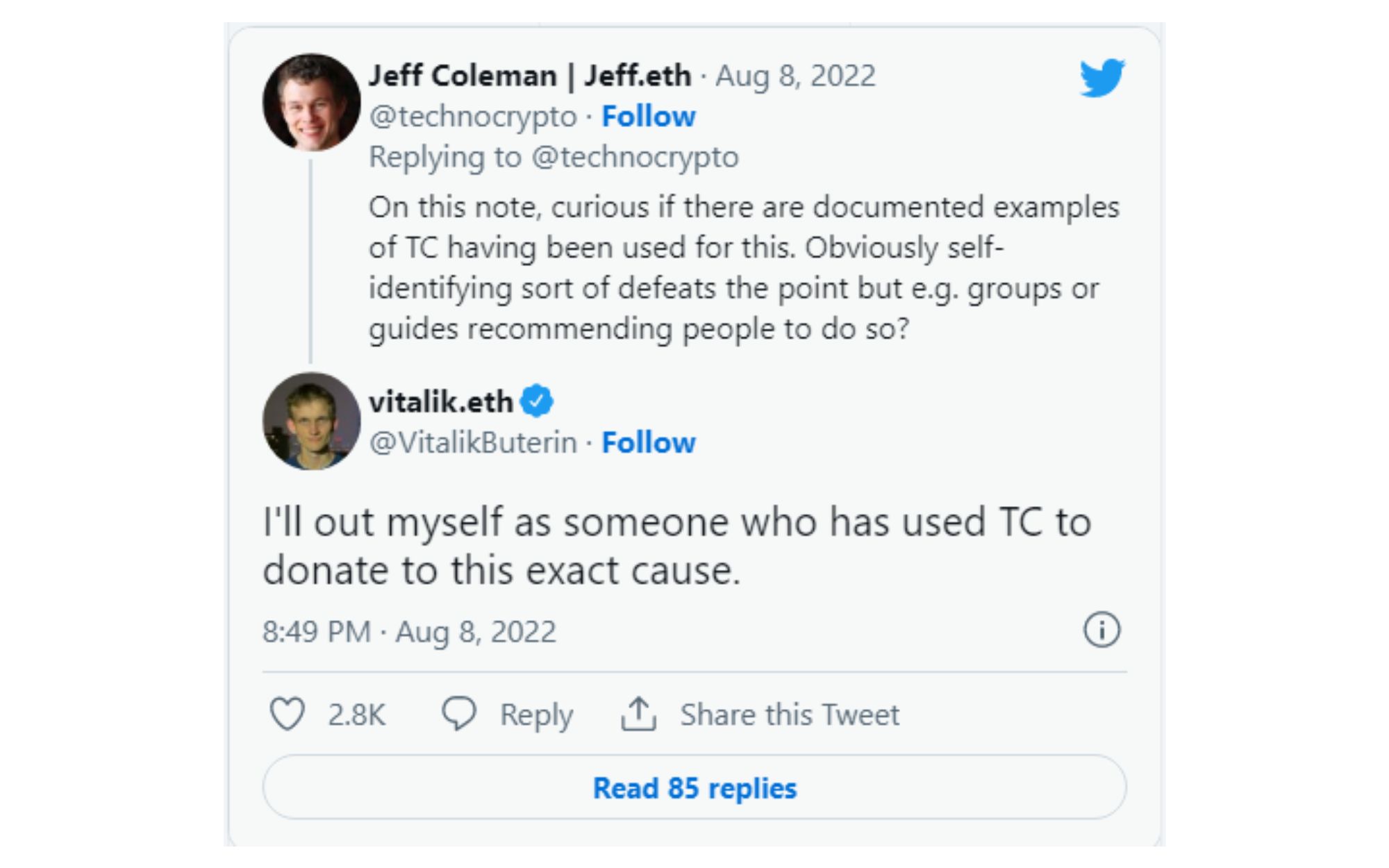US Treasury Blacklisted Crypto-Mixing Service Tornado Cash
The US Treasury blacklisted crypto-mixing service Tornado Cash, which has made it illegal for any American to use this decentralized crypto service. Tornado Cash is a decentralized and open-source protocol for conducting private transactions on the Ethereum network. The protocol was established in 2019, making it a crypto-mixer.
Author:James PierceReviewer:Camilo WoodAug 12, 20227 Shares769 Views

The US Treasury blacklisted crypto-mixing service Tornado Cashwhich has made it illegal for any American to use this decentralized crypto service.
Tornado Cash is a decentralized and open-source protocol for conducting private transactions on the Ethereum network. The service was established in 2019, making it a crypto-mixer.
Tornado Cash uses smart contracts, which let users send ether or an ERC-20 token to one address and then withdraw money from a different address.
On August 8, the Office of Foreign Assets Control (OFAC), a non-partisan agency that works for Congress and is tasked with preventing violations of sanctions, added Tornado Cash to its Specially Designated Nationals list (SDN List).
The SDN List and Blocked Persons List are lists of sanctions and embargoes put in place by the U.S. government against people who have been labeled terrorists by the U.S., officials, and beneficiaries of certain authoritarian regimes, and international criminals.
This list keeps track of the people, organizations, and cryptocurrency addresses that are not allowed to do certain things.
Decrpyt, a brand of independent media that gives information and analysis to help people use blockchain, mentioned:
"The Treasury effectively banned all Americans from using Tornado Cash, a tool to conceal the public trails of their cryptocurrency transactions. The Tornado Cash website has been unreachable for three days. Treasury defended the move by citing numerous instances in which the service has been used to launder money by bad actors, including North Korean state-sponsored hacking organization Lazarus Group, and the individuals that stole $7.8 million in last week’s Nomad Bridge hack."
Prevailing Clash In Crypto World
An investigation revealed that Tornado Cash, which is intended to conceal the source of funds, was used to move tens of millions of dollars worth of the cryptocurrency stolen from Ronin.
A similar mixing business, Blender.io, as well as around $20.5 million in cryptocurrency taken from Ronin, were previously sanctioned by OFAC.
A senior department official said that cybercriminals who want to launder and do crimes frequently turn to Tornado Cash, and it has also assisted hackers, including those who are currently subject to U.S. sanctions, in this endeavor.
"Tornado Cash has been the go-to mixer for cybercriminals looking to launder the proceeds of crime, as well as helping to enable hackers, including those currently under U.S. sanctions, to launder the proceeds of their cybercrimes. by covering up the origin and transfer of this illicit virtual currency. Since its creation back in 2019, Tornado Cash has reportedly laundered more than $7 billion worth of virtual currency."
The Treasury Department's action is the "biggest, most impactful step" it has taken in relation to cryptocurrencies so far, according to Ari Redbord, head of legal and government affairs at analytics company TRM Labs.
On-chain data analysis shows that the Ronin hackers kept using Tornado Cash to wash Ronin funds even after OFAC banned an Ethereum address tied to the Lazarus Group, which it said was involved in the hack.
U.S. Department Of Treasury Press Release

The following remarks were posted on the United States' official page under "Press Release." The statement began with the words:
“„Today, the U.S. Department of the Treasury’s Office of Foreign Assets Control (OFAC) sanctioned virtual currency mixer Tornado Cash, which has been used to launder more than $7 billion worth of virtual currency since its creation in 2019.
The United States put sanctions on the Lazarus Group, a hacking group in the Democratic People's Republic of Korea (DPRK) that was run by the government. In 2019, the group stole more than $455 million in virtual currency in what is thought to be the biggest theft of its kind to date.
"Tornado Cash was subsequently used to launder more than $96 million of malicious cyber actors’ funds derived from the June 24, 2022, Harmony Bridge Heist, and at least $7.8 million from the August 2, 2022 Nomad Heist.
Today’s action is being taken pursuant to Executive Order (E.O.) 13694, as amended, and follows OFAC’s May 6, 2022 designation of virtual currency mixer Blender.io (Blender)," they stated.
Secretary of the Treasury for Terrorism and Financial Intelligence Brian E. Nelson said:
"Today, Treasury is sanctioning Tornado Cash, a virtual currency mixer that launders the proceeds of cybercrimes, including those committed against victims in the United States.
Despite public assurances otherwise, Tornado Cash has repeatedly failed to impose effective controls designed to stop it from laundering funds for malicious cyber actors on a regular basis and without basic measures to address its risks.
Treasury will continue to aggressively pursue actions against mixers that launder virtual currency for criminals and those who assist them."
In coordination with other U.S. government agencies and their international counterparts, the Treasury has continued to use its powers against malicious cyber actors.
Their effort to identify, disrupt, and bring to justice the perpetrators and people who aid criminals in making a profit from cybercrime and other illegal activity is still their focus.
What Does The Punishment Mean?
Because of what happened today, any property or property interests owned by the above-mentioned Tornado Cash entity that are in the United States or are owned or controlled by U.S. persons must be reported to OFAC so that they can be frozen and blocked.
The statement further reads:
Any entities that are owned, directly or indirectly, 50 percent or more by one or more blocked persons are also blocked. All transactions by U.S. persons or within (or transiting) the United States that involve any property or interests in property of designated or otherwise blocked persons are prohibited unless authorized by a general or specific license issued by OFAC, or exempt.
This includes giving or receiving money, goods, or services from or for the benefit of a blocked person, as well as giving or receiving money, goods, or services from or for the benefit of a blocked person.
Weighing Crypto Leaders' Standpoints About The Ban
Some industry leaders in the crypto space have spoken out in the days following the announcement, calling the ban not only unfair but also illegal and an existential threat to user privacy.
This is important because privacy is probably the "holiest tenet of an industry" that has been shaped by libertarian, anti-government ideas from the beginning.
The ban's legality and appropriateness is a matter of debate among experts and industry leaders who spoke to Decrypt, and their opinions are split.
Most people agreed that the move may have just made things much worse between angry privacy advocates in crypto and the federal government. This could change the landscape for years to come.
Many people in the cryptocurrency community see the decision as a violation of personal freedom and abuse of government power.
On Twitter, a cryptocurrency lawyer named Collins Belton called it "probably the most important legal action in crypto" and worried that it would have "absolutely gigantic ripple effects."
This week, people who support Tornado Cash said that the technology can be used for both good and bad things and is neutral, like virtual private networks (VPNs) or The Onion Router (TOR).
While this was going on, Coin Center also talked about the crypto clash. They said:
"This is a limit on any American who wishes to use her own money and a freely available software tool to maintain her own privacy—including for otherwise entirely legal and personal reasons."
An article from Coin Center says that the Treasury's move is a restriction on free speech and, in essence, a ban on using an open source software instrument.
On the contrary, an announcement made by the Treasury Department sheds light on their stance. In the announcement, they stated that the "ultimate goal of sanctions is not to punish, but to bring about a positive change in behavior."
"The power and integrity of OFAC sanctions derive not only from OFAC's ability to designate and add persons to the SDN List but also from its willingness to remove persons from the SDN List consistent with the law," the Treasury Department stated.
On the other hand, take note of this important point from a blockchain analysis firm called Chainalysis, where they claimed:
“„According to the findings of the study, over 10% of all cash transferred from criminal addresses are sent to mixers, and the study also found that the use of mixers in illicit activities has greatly increased in 2022.
Take the following scenario into consideration: someone moves cryptocurrency from one account to another. A record of the transaction is then written into the blockchain so that it cannot be altered.
It is then possible for investigators to use this publicly available information to track money flows and learn about the financial activity of a person or company.
For instance, the United States Department of Justice used blockchain records to track down and shut down a global child abuse website, which led to the arrest of hundreds of perpetrators.
Because of this, there is a need for "mixing" services, which are meant to hide what is happening on the blockchain.
A user can put bitcoin into a mixer, which will then use advanced cryptography to hide the trail of the money and send it to a new wallet address when the process is done.
The user will then be able to get their money back and cash them out without giving away their identity.
The US Treasury's Tornado Cash Eth
Vitalik Buterin says that he used the Ethereum mixing protocol because he didn't want the Russian government to know what he was doing.
Just one day after the US Treasury Department put Tornado Cash on a list of services that can't be used, Ethereum's cofounder said that he had used the service to send money to Ukraine.
Buterin wrote on Twitter about the protocol that lets crypto users make more private transactions. "I'll admit that I've used [Tornado Cash] to donate to this exact cause."
His tweets are seen below.
Buterin said this in response to Jeff Coleman, who co-founded a company called Counterfactual and said that giving money to Ukraine during a war was a need for financial privacy.
Coleman said on Twitter, "Even if the government where you live is in full support, you might not want [the] Russian government to have full details of your actions.”
Tornado Cash Alternative
Apart from tornado cash, the following are the alternatives that you can use:
- jambor.pro
- valid.network
- chartex.pro
- badger.finance
- zerion.io
- curve.fi
- defipulse.com
- messari.io
Tornado Cash Sanctions

U.S. Treasury sanctions Tornado Cash over cyber-crime concerns
People Also Ask
Is Tornado Cash Legal?
Even though criminals use Tornado Cash, it is also often used by a wide range of users for legal transactions.
What Is Tornado Cash?
Tornado Cash is an open-source protocol for private transactions on the Ethereum network that is decentralized.
Tornado Cash uses smart contracts that let users deposit ether or an ERC-20 token to one address and withdraw from another.
Who Created Tornado Cash?
Tornado cash was created by Roman Semenov.
Does Tornado Cash Charge A Fee?
It is currently set at 0.3%. Some pools do not charge fees because the instance is too small to charge a fee (0.1 ETH, 100 DAI/USDT, 1000 DAI/USDT) or because there is insufficient liquidity on Uni v3 (all cDAI instances).
Conclusion
The fight for financial privacy that has been going on between the crypto community and the United States government recently got a lot more intense in the midst of increased government efforts to crack down on criminals.
When the headline "US Treasury blacklists crypto-mixing service Tornado Cash" appeared in the news, the government told its citizens on Monday, June 8, that they couldn't use the service because it was used to money launder over $7 billion.
As a direct consequence of this, it is forbidden for any person or entity based in the United States to engage with Tornado Cash or any of the Ethereum wallet addresses that are associated with the protocol. Those who engage in such behavior may be subject to legal consequences.

James Pierce
Author

Camilo Wood
Reviewer
Latest Articles
Popular Articles

